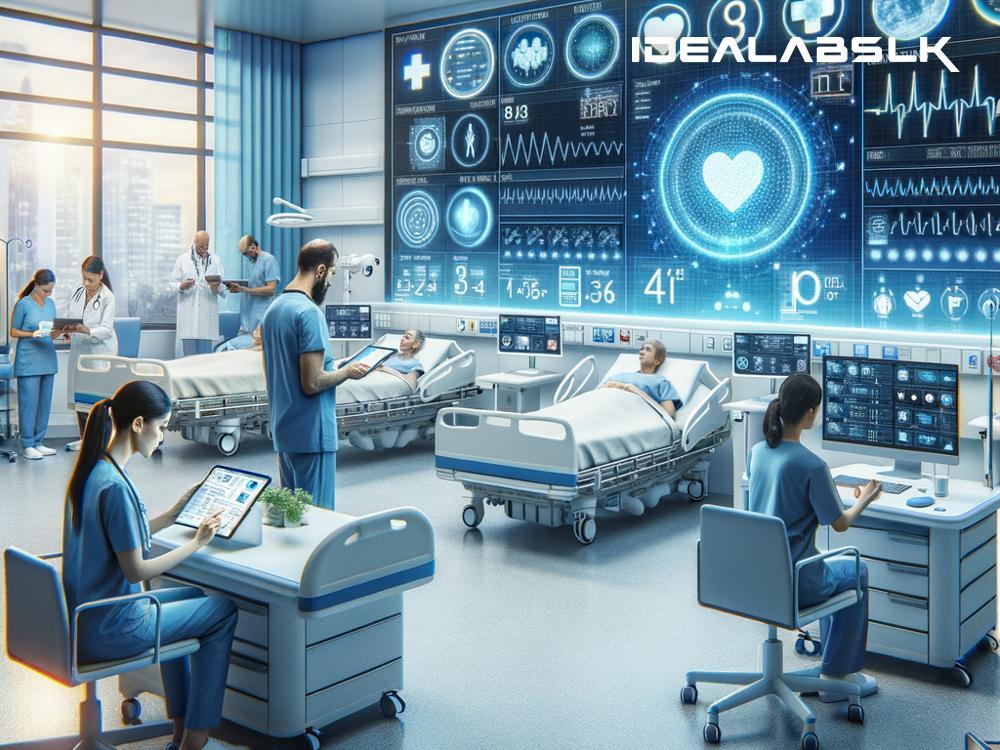The Evolution of Smart Hospitals: How IoT and AI Are Improving Healthcare Services
In the past, hospitals were places where care was primarily manual and paper-based, with technology playing a minimal role. Fast forward to today, hospitals are transforming into smart facilities, equipped with advanced technologies like the Internet of Things (IoT) and Artificial Intelligence (AI). This evolution is changing the healthcare landscape, making services more efficient, accurate, and patient-friendly. Let's explore how IoT and AI are revolutionizing healthcare, marking the rise of smart hospitals.
Understanding IoT and AI in Healthcare
Before diving deeper, it's essential to grasp what IoT and AI mean in the context of healthcare. IoT refers to the network of physical devices, vehicles, home appliances, and other items embedded with electronics, software, sensors, actuators, and connectivity which enables these objects to connect and exchange data. Imagine a hospital where medical equipment, wearable devices, and even beds are interconnected, collecting and sharing vital data seamlessly.
AI, on the other hand, involves machines or computers performing tasks that typically require human intelligence. This includes problem-solving, recognizing speech, and making decisions. In healthcare, AI can analyze complex medical data and offer insights that human doctors might need help to catch at first glance.
Revolutionizing Patient Care with IoT
IoT is making hospitals smarter by enabling real-time monitoring of patients. Wearable devices and sensors can track a patient's vital signs like heart rate, blood pressure, and oxygen levels continuously. This data is then sent to healthcare providers, allowing them to monitor patients' conditions remotely and intervene promptly if necessary. This not only improves the quality of care but also significantly reduces the risks of complications.
Moreover, IoT devices can enhance the management of hospital resources. For example, smart beds can detect if they're occupied and adjust the settings for optimal patient comfort without manual intervention. Similarly, tracking devices on medical equipment like wheelchairs, defibrillators, or even medication carts can help manage hospital assets more efficiently, ensuring they are always where they are needed.
Diagnosing and Treating with AI
AI is at the forefront of transforming diagnoses and treatments in smart hospitals. Through machine learning algorithms, AI systems can analyze vast amounts of medical data, such as lab results, imaging scans, and patient medical histories, to identify patterns and diagnose diseases often faster and more accurately than human doctors. For instance, AI algorithms have been developed to detect cancers and other conditions early, significantly improving the chances of successful treatment.
Furthermore, AI is enhancing personalized medicine. By analyzing a patient's unique genetic makeup, lifestyle, and environmental factors, AI algorithms can predict how they will respond to various treatments. This allows doctors to tailor treatments to individual patients, improving outcomes and reducing the risk of adverse reactions.
Streamlining Operations and Enhancing Experiences
Smart hospitals leverage IoT and AI not just for clinical tasks but also to improve operational efficiency and patient experiences. IoT devices enable better asset management and environmental monitoring, ensuring that hospital operations run smoothly. For example, sensors can monitor and adjust lighting and temperature for energy efficiency and patient comfort.
AI-powered systems can manage appointments, predict patient admission rates, and optimize staff schedules, reducing wait times and ensuring that resources are effectively allocated. Chatbots and virtual assistants can provide patients with information and support, improving their overall experience.
Addressing Challenges and Looking Forward
The transition to smart hospitals is not without challenges. Concerns about data privacy, cybersecurity, and the cost of implementing new technologies are significant hurdles. Moreover, the human workforce needs to adapt to these changes, requiring training and adjustments in their roles.
Despite these challenges, the evolution of smart hospitals signifies a monumental shift in healthcare delivery. IoT and AI are making healthcare more proactive, precise, and personalized. As these technologies continue to develop and integrate into healthcare systems, we can expect to see even more innovative solutions that not only improve patient care but also empower healthcare providers to deliver exceptional services.
In conclusion, the journey towards smart hospitals, powered by IoT and AI, is well underway. This evolution is set to redefine healthcare services, making them more efficient, accessible, and tailored to individual needs. From enhanced patient monitoring to AI-driven diagnoses and personalized treatments, the future of healthcare is bright, with smart hospitals leading the way.

